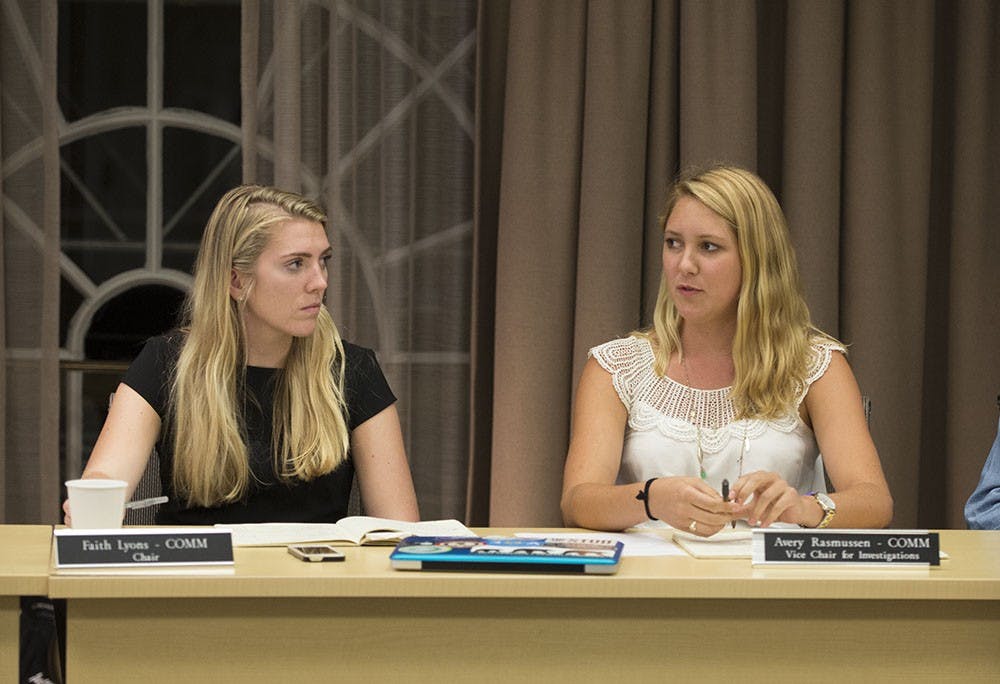The 2015-16 Honor Committee wrapped up its term with a vote on three new by-laws, as well as a review of an audit of the committee’s hearing procedure.
The first by-law amendment, which passed with 20 members in favor and three against, was a change of the term “advocate” back to the term “counsel.”
This change was proposed to ensure students on trial understand their counsel’s role is not to advocate for them but to advise them on how to approach their case.
The second and third by-law amendments both passed unanimously and alter the wording of the by-laws concerning the informed retraction policy, which allows a student accused of an honor offense to admit to his or her offense.
Under the current by-laws, students who have filed informed retractions are required to wait two academic semesters before the general faculty can confer the degree. The new by-laws change this time period to one full academic year.
These amendments will take effect August 1.
The second part of the 2015-16 committee’s last meeting was a discussion of the “hearing audit.” The purpose was to “evaluate the current state of hearings, in order to ensure that they are operating in a fair and efficient way,” according to the Policies and Procedures Sub-committee report.
The audit report clarifies exactly what counselors must do when following up with students after the trial has been held.
The audit emphasizes, for example, that counselors are required to inform non-guilty students that all records of the proceedings will be destroyed.
Matt West, third-year College student and incoming Honor chair, said he went through the “basic description of how Honor perceives leading questions, the few circumstances where leading questions are acceptable, and just gave some general tips for avoiding leading questions” in the audit.
According to the report, leading questions “pressure a witness to answer a question a particular way,” and typically begin with phrases like “isn’t it true that,” or “do you agree that.”
Shawn Podowski, a second-year College student and member of the Policies and Procedures sub-committee, talked about the right of students to deliver their own closing speeches, which are given after hearings.
Podowski sent a Google survey to support officers and found that 55.3 percent of support officers who responded were in favor of allowing students deliver their own closing speeches, which is already a right of theirs.
“The reason we’re generally for it is because it’s a better opportunity for a student to be heard and to defend themselves,” Podowski said.
Podowski said a support officer who responded said the defendant “may be too emotional or passionate rather than factual as we want them to be,” and that students “may be too combative against a witness.”
The next cycle of committee members will take over at next week’s meeting on April 10.
Correction: This article previously listed Jen Yeaton as a support officer and misattributed a quote to her.







